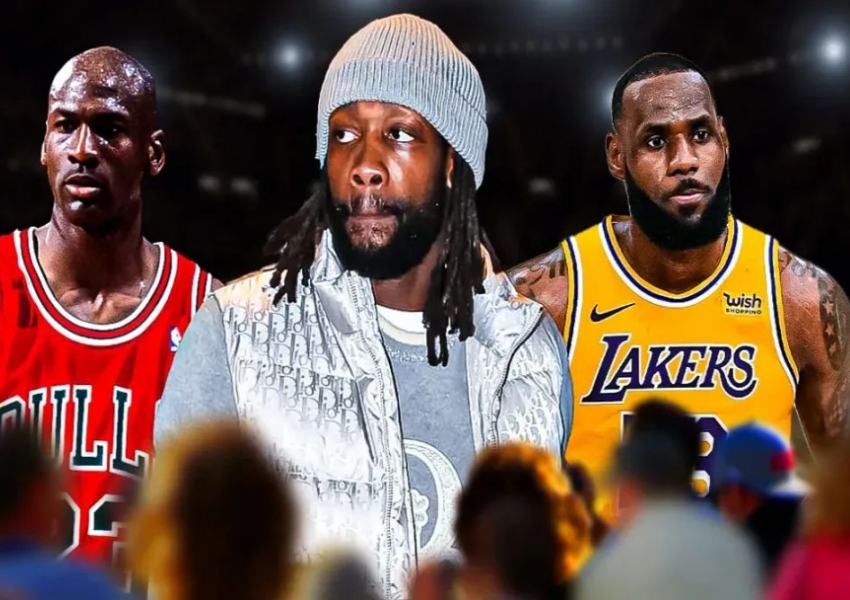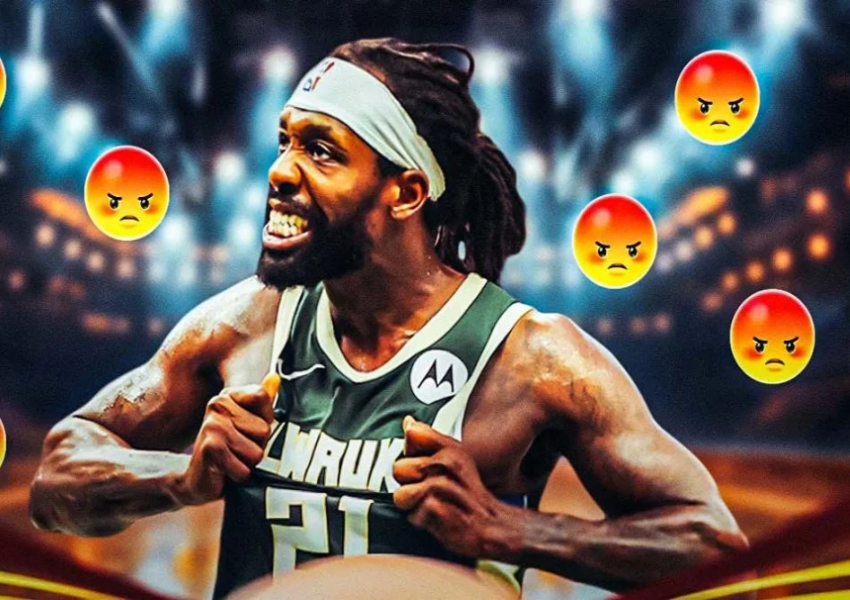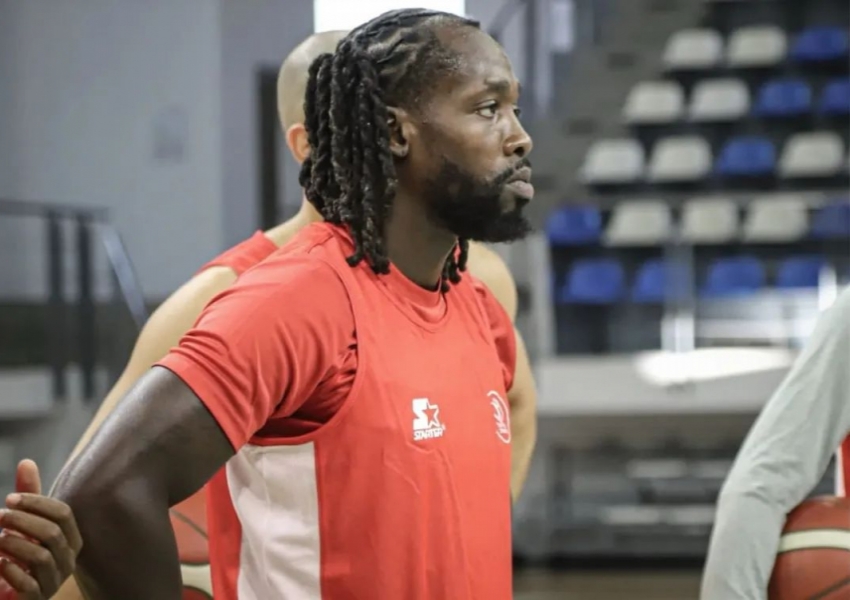Not Just for the Money: Why 36-Year-Old Patrick Beverley Left the NBA
Patrick Beverley, never one to shy away from controversy, recently stirred up the basketball world with comments made on his personal podcast. Beverley discussed the difference between regular stars and superstars, stating, “Players like Curry, LeBron, Kobe, and Jordan are common; you can find them everywhere. People ask, ‘Who’s the next Rose? Who’s the next Westbrook?’ But there’s only one Draymond Green, one Beverley, and one Rodman.” It’s a bold claim that raises eyebrows, not just for the audacity of downplaying some of the greatest players in NBA history, but also for Beverley placing himself in the same conversation as defensive stalwarts like Draymond Green and Dennis Rodman.

Beverley’s remarks come at a time when his own NBA career has taken a significant turn. The 36-year-old defensive guard, known for his gritty play and outspoken nature, has confirmed that he won’t be playing in the NBA next season. Instead, Beverley has signed with Maccabi Tel Aviv, a prominent Israeli basketball club. This marks a major shift for a player who has spent over a decade battling some of the league’s best talents on the biggest stage.

Many might wonder why Beverley, who still appears to have some gas left in the tank, would leave the NBA, especially when he could still contribute to a team. Beverley’s move to Maccabi Tel Aviv isn’t just about extending his career; it’s also a decision influenced by a combination of factors, including financial incentives, personal motivations, and perhaps a desire to take on a new challenge at this stage of his life.

Last season, Beverley played for both the Philadelphia 76ers and the Milwaukee Bucks, with his stint in Milwaukee being more notable. In 26 games for the Bucks, Beverley averaged 6.0 points, 3.6 rebounds, 2.6 assists, and 0.7 steals per game while shooting 36.1% from beyond the arc. Though these numbers aren’t eye-popping, they reflect Beverley’s role as a reliable, hard-nosed player who brings more to the table than just statistics.
In the playoffs, Beverley saw his role expand due to injuries to key players like Giannis Antetokounmpo and Damian Lillard. His minutes increased to 34.9 per game, and he responded by averaging 8.2 points, 3.3 rebounds, 5.5 assists, and 1.0 steals. He also shot a respectable 41.0% from the field, 36.4% from three, and 86.7% from the free-throw line. In Game 5 of their first-round series, Beverley delivered a standout performance with 13 points and 12 assists, showcasing his ability to step up in critical moments.
Given his performance, it would seem that Beverley could have continued playing in the NBA. Reports indicate that the Houston Rockets and Detroit Pistons both extended offers to Beverley early in free agency. However, these offers were likely for the veteran’s minimum, given the current market conditions. For a player of Beverley’s tenure, this would have meant a one-year deal worth around $3 million. While $3 million is a significant sum, after taxes, agent fees, and other deductions, Beverley would have taken home only about $1.1 to $1.4 million.
In contrast, Beverley’s contract with Maccabi Tel Aviv offers a more lucrative package. His reported salary is $2 million, tax-free, with the potential for an additional $1 million in bonuses if he helps the team win the Israeli League title and qualify for the EuroLeague. Factoring in the bonuses, Beverley could earn the equivalent of two to three NBA minimum salaries in one season—a substantial increase in income with fewer games to play. The Israeli league season, including all competitions, consists of around 50 to 60 games, compared to the grueling 82-game NBA schedule, not counting playoffs.
Financially, the move to Israel clearly makes sense for Beverley, but there are other factors at play. Beverley has expressed concerns about the ongoing conflict in Israel, acknowledging the risks involved. He mentioned on his podcast, “My only concern is that Israel is currently a war zone. If a bomb lands while I’m playing, I might not survive. But I still want to play there.” While these comments highlight the inherent dangers, it’s important to note that Maccabi Tel Aviv has temporarily relocated its home games to Bulgaria due to the conflict, where Beverley is currently training.
Beyond financial incentives and safety considerations, Beverley’s decision to play in Israel also appears motivated by a desire for a different kind of basketball experience. In the NBA, Beverley was often cast in a supporting role, particularly in his final seasons with the Bucks, where he spent much of his time as a corner shooter, watching stars like Giannis and Lillard dominate the ball. However, Beverley sees himself as more than just a role player, as evidenced by his comments about wanting to return to the role he once had earlier in his career.
After signing with Maccabi Tel Aviv, Beverley stated, “In the NBA, players have different roles. But now I finally get to go back to my original role—the one where, with seven seconds left, the ball is in my hands, and everyone watches me work. Isolation plays, step-backs… I can do all that. People often forget, but I don’t blame them. I had a great NBA career, but I don’t want to just stand in the corner and watch my teammates play.”
Beverley’s desire to have a larger role on the court is understandable, especially for a player who built his reputation on being a fierce competitor and relentless defender. In Israel, Beverley will have the opportunity to be a focal point of his team’s offense and defense, something that wasn’t possible in his last few years in the NBA. This move also allows him to chase another goal—winning a European title. Beverley has set his sights on dominating the Israeli league and leading Maccabi Tel Aviv to a EuroLeague championship, stating, “I want to completely dominate the game. I want to win the EuroLeague. To do that, you have to first win the EuroCup.”
This isn’t Beverley’s first foray into European basketball. After being suspended by his college for academic misconduct during his junior year, Beverley left the University of Arkansas and began his professional career overseas. He played in Greece and Russia before making his NBA debut. During his time in Europe, Beverley enjoyed considerable success, including leading his team to the EuroLeague Final Four and being named the EuroLeague MVP for the 2011-12 season. However, that was more than a decade ago, and Beverley was in his early twenties, not his mid-thirties as he is now.
At 36, Beverley’s return to European basketball raises questions about whether he can replicate the success he had in his youth. The physical demands of the game have not lessened, and Beverley’s body has accumulated years of wear and tear from his relentless playing style. There’s no guarantee that he can be the same dominant force he once was, especially in a league that has seen a steady influx of young, talented players.
Moreover, while it’s relatively common for players who don’t find success in the NBA to transition to Europe, the reverse is much more difficult. Making a successful return to the NBA after playing in Europe, especially at Beverley’s age, is a daunting task. Beverley himself may realize that this stint in Israel could very well be his “last dance,” the final chapter of a career that has been defined by tenacity, resilience, and a never-say-die attitude.
In the end, Beverley’s decision to leave the NBA is not just about money. It’s about reclaiming a sense of control over his career, about wanting to be more than just a role player in the twilight of his professional life. It’s about seeking new challenges and new goals, even if it means leaving the bright lights of the NBA for the less glamorous but equally competitive courts of Europe. Beverley’s journey has always been about defying the odds, and this next chapter will be no different. Whether he succeeds or not, Beverley will undoubtedly approach it with the same intensity and passion that has defined his career.
Copyright Statement:
Author: focusnba
Source: FocusNBA
The copyright of this article belongs to the author. Reproduction is not allowed without permission.
Recommended Blog
- Official Announcement! Former NBA Star Signs with Chinese League, Confirms Departure from NBA Dreams...
- Officially Exits the NBA! After 12 Years, Saying Goodbye as a Bucks Starter…
- $70 Million Over 4 Years! The Eastern European ATM—Why the Clippers Value What the Lakers Let Go
- Official Signing! China's Best Free-Throw Shooter Joins the Ranks: The CBA Braces for Impact
- 84 Rating? Just 84! Another Blow to Harden! Worse Than the Green Hat Drama…
- Goodbye, 29 Teams! Steph Curry Signs Major Extension: The Offseason’s Last Big Deal…
- After Two Long Months, Lonnie Walker Finally Signs! Why Is the 25-Year-Old Struggling So Much?
- The New No. 7: Zeng Fanbo’s Journey as China’s Future Top Forward
- Yao! Yi Jianlian’s 7 Billion Yuan Purchase of Guangzhou Loong Lions? The First Superstar Club of the New Season…
- Shocking News! Lin Wei and Zhuo Shi Split Up? Second-Year Star Becomes Chinese National Team MVP…